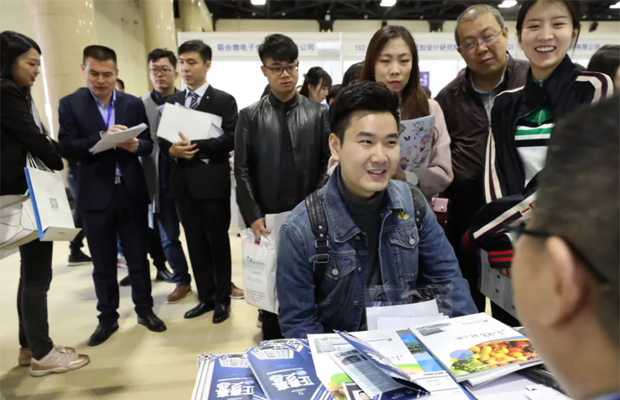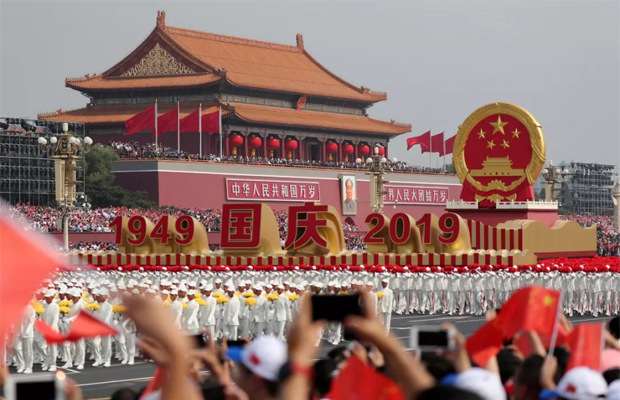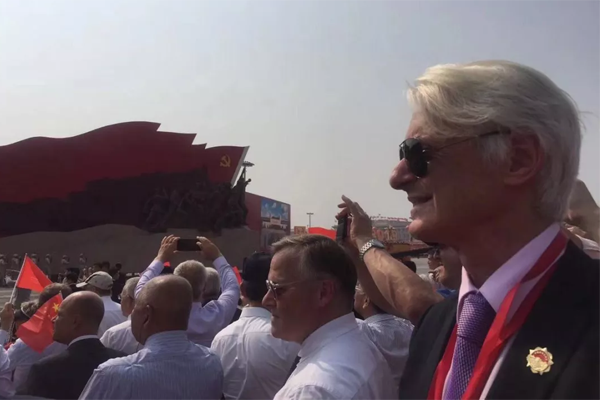CCG advocates the development of talent mobility. Committed to study of the globalization of talent, CCG conducts major research projects, organizes events, publishes books and research reports in the fields of international talent, international migration, overseas Chinese, and the situation of talent studying abroad and returning to China.
Impact on Policymaking Based on solid empirical research results, CCG proposes a series of policy recommendations to improve China's talent development and immigration system, and plays an active role in promoting major policies, such as the establishment of the National Immigration Administration.
CCG has published a series of Blue Books such as the Blue Book of Global Talent: Annual Report on the Development of Chinese Students Studying Abroad, Blue Book of Global Talent: Annual Report on Chinese International Migration, Blue Book of Regional Talent: Report on China’s Regional International Talent Competitiveness, and the IOM World Migration Report, as well as a series of English books with Springer, including China’s Domestic and International Migration Development, filling the gap in the field of international talent research in China.
CCG has established brand forums such as the China Talent 50 Forum and the Global Education 50 People Forum, and has hosted the China Overseas Returnees Innovation and Entrepreneurship Forum for many years.
CCG's initiative of establishing the Alliance of Global Talent Organizations is supported by relevant national ministries and the Beijing municipal government. CCG’s proposal was selected to participate in the first Paris Peace Forum and CCG held an event on the Alliance of Global Talent Organizations titled “Brain Drain: Making Better Use of the World’s Talent” at the second Paris Peace Forum.
-

Wang Huiyao: Returnees help voice of China to be heard
In the new era of globalization, the concept of innovation-driven development has been embraced by China and its people. As a leading force of innovation, generations of Chinese overseas returnees have played a major role in China's globalization in the past 70 years.
October 10 , 2019 -

Wang Huiyao: Returnees help voice of China to be heard
In the new era of globalization, the concept of innovation-driven development has been embraced by China and its people. As a leading force of innovation, generations of Chinese overseas returnees have played a major role in China's globalization in the past 70 years.
October 10 , 2019 -

Harvey Dzodin: 70th anniversary parade reflects China’s great progress
The magnificent 70th anniversary parade celebrating New China had many notable highlights, especially President Xi Jinping's address. William Shakespeare wrote that "brevity is the soul of wit". Today we'd say it differently: "less is more". In less than 10 minutes, President Xi managed to highlight and emphasize a number of the most important themes, elements of which were graphically and dramatically demonstrated in the parade that followed. The magnificent 70th anniversary parade celebrating New China had many notable highlights, especially President Xi Jinping's address. William Shakespeare wrote that "brevity is the soul of wit". Today we'd say it differently: "less is more". In less than 10 minutes, President Xi managed to highlight and emphasize a number of the most important themes, elements of which were graphically and dramatically demonstrated in the parade that followed.
October 04 , 2019 -

Laurence Brahm: Nothing will stop China’s progress
Personally participating in the October 1 National Day 70thAnniversary celebrations, there are some observations that I wish to share. The scale of the celebration was unprecedented to my knowledge. The messages that can be decoded from the symbolism that unfolded from two days of events beginning on September 30 were crystal clear.
October 02 , 2019 -

Wang Huiyao: China is ready to play a bigger role in world affairs
The 70th anniversary of the founding of the People's Republic of China on October 1 is an occasion to look back on the nation's momentous progress and consider what role it will play in the world over the next seven decades. China has benefited greatly from embracing globalization and its institutions such as the World Trade Organization, the International Monetary Fund and the World Bank. As China's economy continues to expand, Beijing's role in the future will be to safeguard and enhance the international liberal order.
October 01 , 2019


